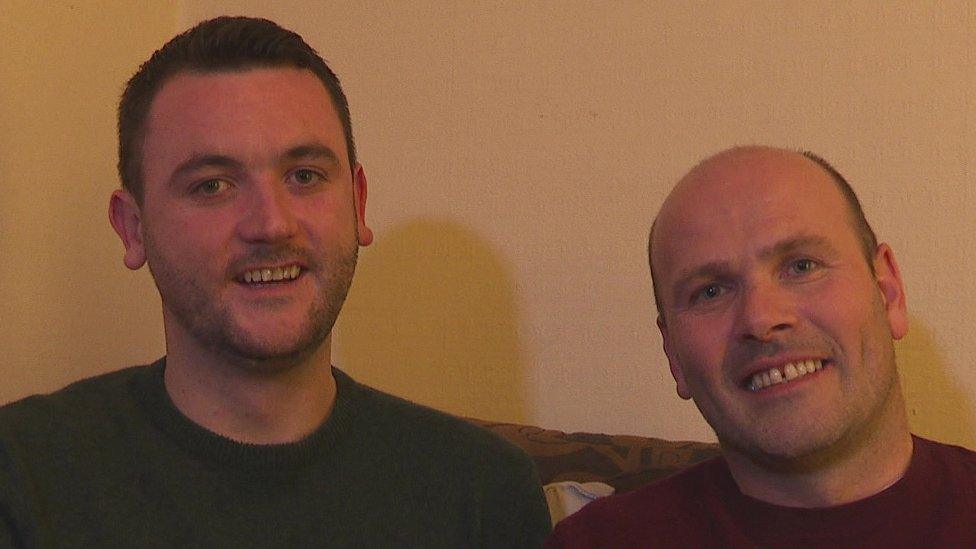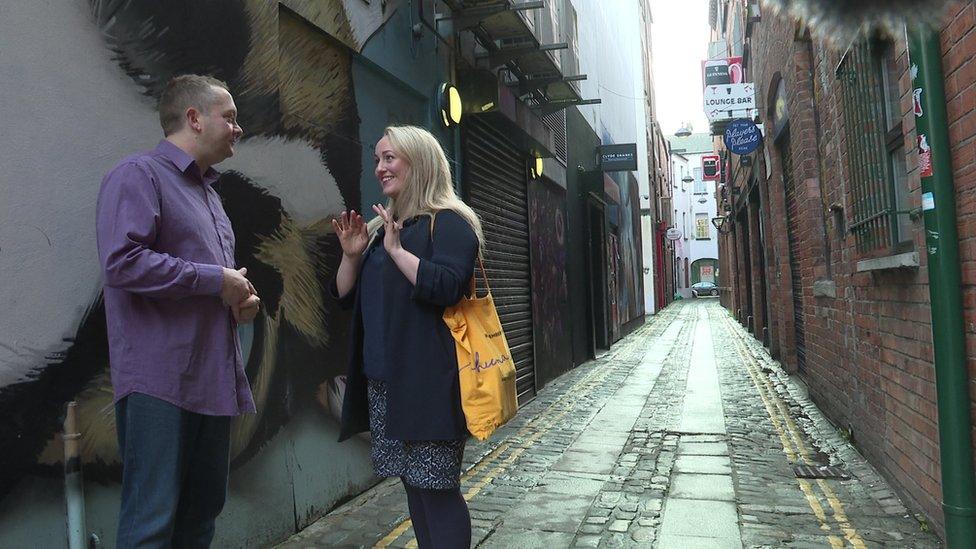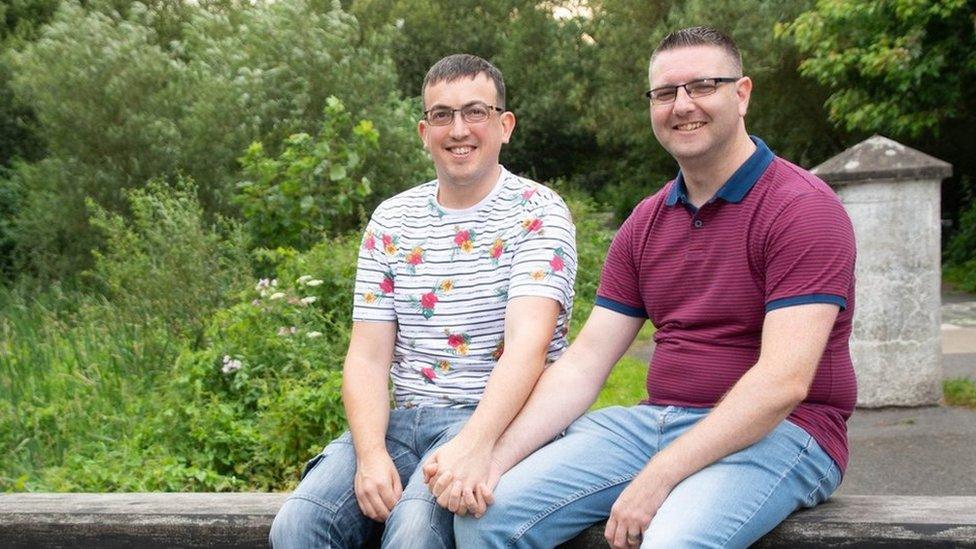Same-sex couple to re-marry in Northern Ireland
- Published
Same-sex marriage: 'It's such an important moment of recognition'
Gary and Tom Rowntree-Finlay got married last year in Cyprus, but are planning a second ceremony now that same-sex marriage has been legalised in Northern Ireland.
The new legislation says the Westminster government must bring in regulations to provide for same-sex marriage by 13 January 2020.
Because couples have to indicate their intention to marry 28 days before doing so - Northern Ireland's first gay weddings are set to take place in the week of Valentine's Day.
The Glengormley couple met more than 10 years ago and have lived together for the last nine years.
"We thought that our relationship could only take one more step and that was to get married," said Tom.
"It seemed like the biggest, most important thing I've ever done."

Gary and Tom Rowntree-Finlay are going to get married again in Northern Ireland
Since same-sex marriage was illegal at home, Gary and Tom said they felt that they had to leave Northern Ireland to get married.
"We couldn't even have a token wedding here. Morally it didn't feel right," said Gary.
Next year, their wedding will be legally recognised, he said.
"Once it becomes more socially acceptable for us to be husbands, it will make our lives easier," said Gary.
Gary and Tom had a humanist ceremony in Cyprus, and will have a similar ceremony in Belfast.

Humanist celebrants say they have been inundated with same-sex wedding inquiries
According to the Northern Ireland Humanists, its 25 celebrants here have been receiving dozens of inquires every week about same-sex marriages.
"We've had a huge increase in demand and inquiries from couples looking to have a same-sex marriage," said Stewart Holden, head of the humanist celebrant network in Northern Ireland.
Humanist celebrant Laura Fitzsimons said the same-sex couples that had been in contact with her had delayed booking until the legislation passed.
Same-sex couples can also have a civil marriage in Belfast City Hall, or at a local council office.
How did Northern Ireland legalise same-sex marriage?
Same-sex marriages have been allowed in England, Scotland and Wales since 2014, but Northern Ireland's devolved government did not legalise them.
BBC News NI looks at the history of Northern Ireland's same-sex marriage debate
The last of five votes on the issue in the devolved assembly - in November 2015 - resulted in a numerical majority in favour of same-sex marriage for the first time.
But the DUP blocked a change in the law by using a veto known as the Petition of Concern.
The assembly at Stormont had not sat for more than 1,000 days after devolved government collapsed when power-sharing coalition partners the DUP and Sinn Féin split in a bitter row.
In July two Labour MPs, Stella Creasy and Conor McGinn, tabled amendments on abortion and same-sex marriage to an otherwise technical government bill connected to the defunct assembly.
MPs voted overwhelmingly for both, and the legislation took effect after the 21 October deadline passed without a devolved government being re-formed.
The Democratic Unionist Party (DUP) - and some politicians from other unionist parties - triggered a recall of the Northern Ireland Assembly in an attempt on Monday to avert the legislation, but were unsuccessful.
- Published18 August 2019
